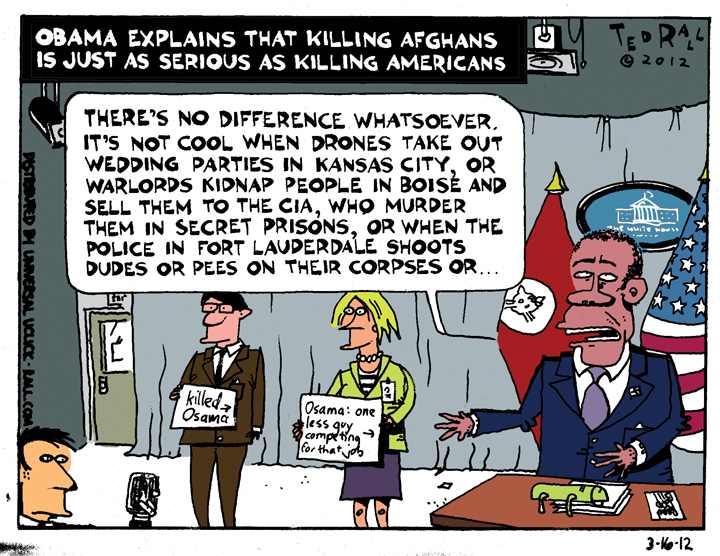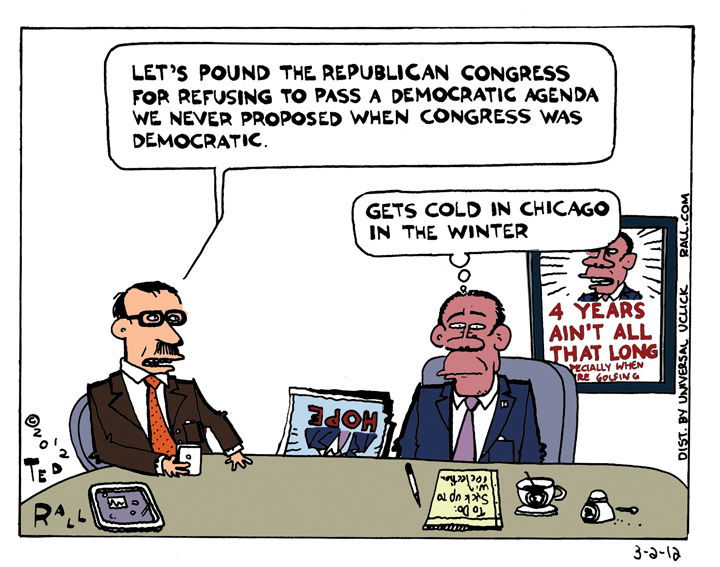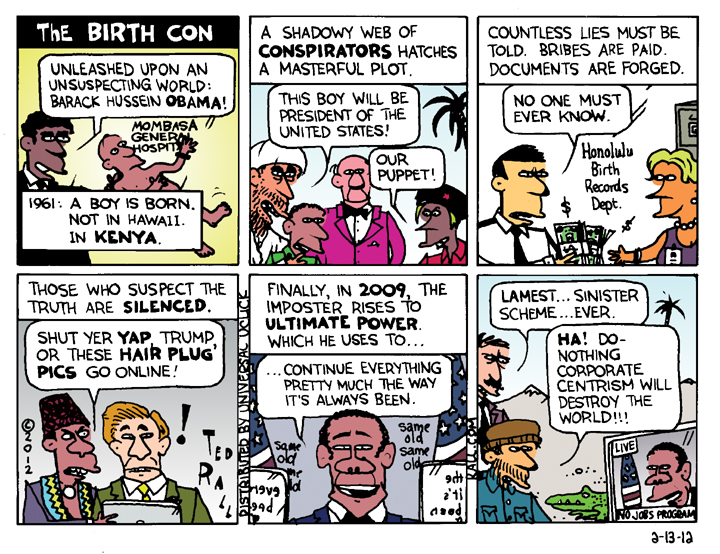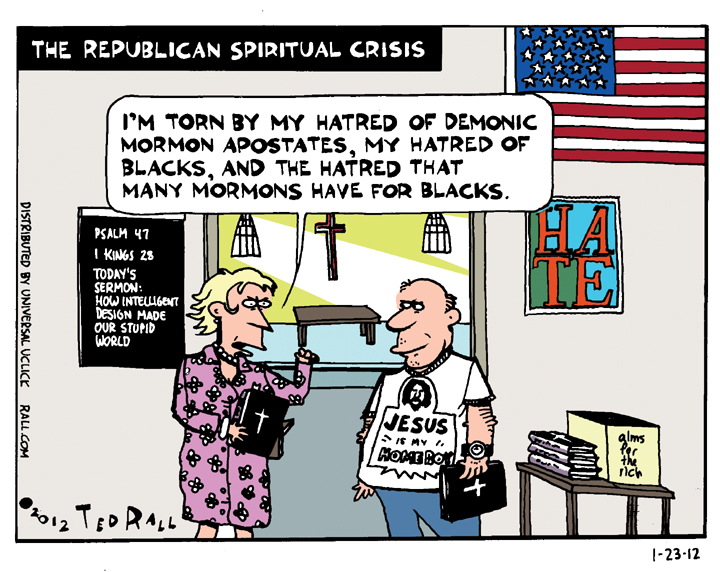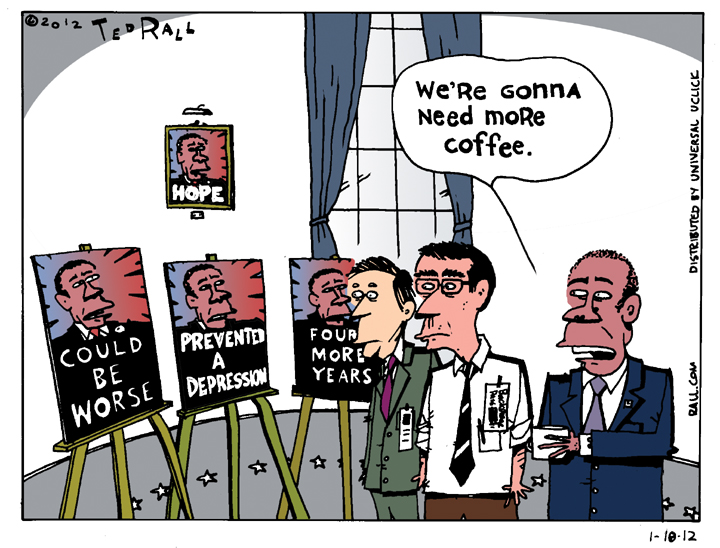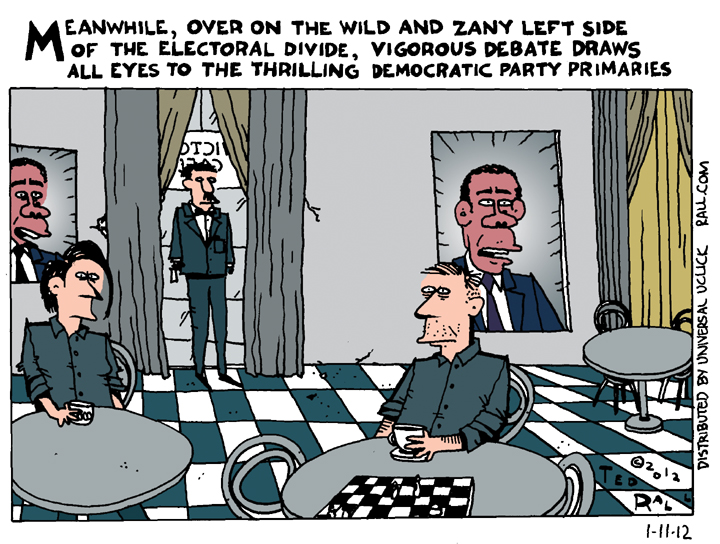After a soldier slaughters 16 civilians in Afghanistan, President Obama pointed out that killing Afghans is just as serious as killing Americans. Amazingly, this is the first time in memory that a president has pointed out thaty foreign lives matter as much as domestic ones.
SYNDICATED COLUMN: Death and Trivia
Bankrupt and Corrupt, U.S. Can’t/Won’t Address Issues We Care About
Millions of Americans won’t vote this November. “Voter participation in the U.S. remains consistently below corresponding levels in most other western democracies,” the International Business Times reported last year. “In countries like Italy, Belgium, Austria and Australia, more than 90 percent of the voting public cast ballots at election time.”
They—the corporate politicians and their media mouthpieces—call it apathy. Obama advisor David Axelrod blamed it for the Iraq War. “There was apathy in 2000, and Al Gore lost that election to George W. Bush by 300 votes, and as a result we wound up in Iraq,” he told the Harvard Crimson. That’s crap. People don’t boycott elections because they don’t care. They are alienated.
We don’t care about two-party electoral politics because two-party electoral politics don’t care about us.
What are Americans most worried about this election season? The same thing we’ve been most worried about for years: the economy. You name the poll: local or national, liberals or conservatives doesn’t matter. Tens of millions of people are unemployed. People who still have jobs live in terror of layoffs. Real inflation is out of control but salaries are frozen or falling. (The fact that we have to specify “real” says a lot about the gap between life out here “on the ground” and over there “inside the Beltway.”)
We’re being ground down. Demoralized. Bankrupted. And they don’t care. Not only do they not care, they don’t notice.
The Fed and the White House are colluding in their quadrennial tradition of ginning up a pseudo-boomlet to support the incumbent. Thus the latest Dow bubble and phony 8.3 percent unemployment rate, which count people who have given up looking for work as “employed.”
Everyone knows the recovery is fiction. Who are you going to believe—the talking heads or your lying, overdrawn, second-mortage line of credit? According to the latest Gallup tracking poll, which actually asks actual people how they’re actually doing in the actual world, 9.1 percent of Americans are unemployed and 19.0 percent are underemployed. When 28.1 percent of Americans are broke, that affects everyone, including the richest 1% trying to sell goods and services.
People expect their “representative” democracy to represent their interests. To address their problems. And solve them.
No wonder why we’re so apathetic. Our “leaders” hardly talk about the economy.
Santorum is more worried about how easy it is to get sex than how hard it is to find work.
Romney thinks it’s 1992 and that he’s Ross Perot, the businessman who promised to run America like a corporation. As though it wasn’t already. As if that wasn’t the problem.
Obama imagines that we didn’t notice that he only started asking Congress to work on the economy after Congress fell under the control of the other party. We’re slow. We’re not deranged.
Our dying political system is unwilling and unable to address joblessness and the widening class divide because our misery isn’t an aberration. It’s an inherent manifestation of corporate capitalism. Ordinary Americans understand this. Half the citizens of this “conservative” country already prefer socialism or communism, according to a Gallup poll conducted in December—watch that go up—yet the political class dares not question the Crappy Economic System That Must Not Be Named.
Since they can’t take on the real issues the elites are reduced to the politics of distraction.
Kids and death.
Those are the D-grade “issues” the powers that be are using this week in order to avoid talking about the atrocious economy.
Federal regulators announced on February 27th that all cars manufactured after 2014 must feature rearview cameras that allow drivers to see what is behind them. The National Highway Traffic Administration says that “95 to 112 deaths and as many as 8,374 injuries could be eliminated each year by eliminating the wide blind spot behind a vehicle,” reported The New York Times. The estimated cost of the devices is $2.7 billion per year.
“In terms of absolute numbers of lives saved, it certainly isn’t the highest,” admitted Clarence Ditlow of the Center for Auto Safety. “But in terms of emotional tragedy, backover deaths are some of the worst imaginable. When you have a parent that kills a child in an accident that’s utterly avoidable, they don’t ever forget it.”
No doubt. I can imagine. By all means, put in those cameras.
But there’s something screwy about a political culture that slaps this trivial story on the front page of the biggest newspaper in the country and makes it a Congressional priority while the elephants in the room go unaddressed. Every year 17,000 Americans die in slip and fall accidents—151 times the rate from backover car accidents. Maybe we should install cameras on the backs of our heads.
Yo, moron journalists and politicos: Jobs! We care about jobs!
If you idiots must obsess over cars, why aren’t you pushing through radical improvements in fuel efficiency, like requiring that every car made after 2014 be either electric or a hybrid? Autos are a major cause of air pollution, which triggers asthma attacks, which kill at least 5000 people annually in the U.S.
It’s not just about the kiddie-poos. The establishments is still wallowing in Bush’s hoary post-9/11 death cult.
The day after its hold-the-presses car-cameras scoop the Times was back with another page-one heartstopper:
“The mortuary at Dover Air Force Base in Delaware disposed of body parts of some victims of the Sept. 11, 2001 attacks by burning them and dumping the ashes in a landfill,” began the story. The victims were killed on Flight 93, which crashed in western Pennsylvania.
Gross? No doubt. Inappropriate? Unquestionably. Important? Hell no.
The worst thing that could ever happened to the people to whom those body parts belonged occurred before. They were dead. Murdered. What went down after that was comparatively trivial.
Not to stir up the Truthers (with whom I disagree), but a more appropriate front-page story would ask: “More Than 11 Years After 9/11, Why Hasn’t There Been an Independent Investigation?”
Here’s what we’ve come to: Get killed on Flight 93 and no one bothers to find out what really happened to you. Have your remains disposed of in a culturally insensitive manner and it’s a scandal.
What if Flight 93 had landed safely? Some passengers would gotten laid off. Some would have been foreclosed upon. And the government wouldn’t have given a rat’s ass about them.
Why don’t people vote?
A better question is: Why do people vote?
(Ted Rall is the author of “The Anti-American Manifesto.” His website is tedrall.com.)
COPYRIGHT 2012 TED RALL
SYNDICATED COLUMN: Want More Wars? Raise Taxes on the Rich
Tax Fairness Won’t Reduce Inequality
Reacting to and attempting to co-opt the Occupy Wall Street movement, President Obama used his 2012 State of the Union address to discuss what he now calls “the defining issue of our time”—the growing gap between rich and poor.
“We can either settle for a country where a shrinking number of people do really well, while a growing number of Americans barely get by,” Obama said. “Or we can restore an economy where everyone gets a fair shot, everyone does their fair share, and everyone plays by the same set of rules.”
No doubt, the long-term trend toward income inequality is a major flaw of the capitalist system. From 1980 to 2005 more than 80 percent in the gain in Americans’ incomes went to the top one percent. This staggering disparity between the haves and have-nots has created a permanent underclass of underemployed, undereducated and alienated people who often turn to crime for survival and social status. Aggregation of wealth into fewer hands has shrunk the size of the U.S. market for consumer goods, prolonging and deepening the depression.
How can we make the system fairer?
Liberals are calling for a more progressive income tax: i.e., raise taxes on the rich. Obama says he’d like to slap a minimum federal income tax of 30 percent on individuals earning more than $1 million a year.
Soaking the rich would obviously be fair. GOP frontrunner/corporate layoff sleazebag Mitt Romney earned $59,500 a day in 2010—and paid half the effective tax rate (13.9 percent) of that paid by a family of four earning $59,500 a year.
Fair, sure. But would it work? Would increasing taxes on the wealthy do much to close the gap between rich and poor—to level the economic playing field?
Probably not.
From FDR through Jimmy Carter it was an article of faith among liberals that higher taxes on the rich would result in lower taxes on the poor and working class. This was because the Republican Party consistently pushed for a balanced budget. Tax income was tied to expenditures, which were more or less fixed—and thus a zero-sum game.
That period from 1933 to 1980 was also the era of the New Deal, Fair Deal and Great Society social and anti-poverty programs, such as Social Security, the G.I. Bill, college grants and welfare. These government handouts helped mitigate hard times, gave life-changing educational opportunities that allowed class mobility, closing the gap between despair and hope for tens of millions of Americans. As the list of social programs grew, so did the tax rate—mostly on the rich. The practical effect was to redistribute income from top to bottom.
Democrats think it still works that way. It doesn’t.
The political landscape has shifted dramatically under Reagan, Clinton and the two Bushes. Budget cuts slashed spending on student financial aid, food stamps, Medicaid, school lunch programs, veterans hospitals, aid to single mothers. The social safety net is shredded. Most federal tax dollars flow directly into the Pentagon and defense contractors such as Halliburton.
As the economy continues to tank, there’s only one category to cut: social programs. “Eugene Steuerle worked on tax and budget issues in the Reagan Treasury Department and is now with the Urban Institute,” NPR reported a year ago. “He says one reason no one talks about preserving the social safety net today is that lawmakers have given themselves little choice but to cut it. They’ve taken taxes and entitlements, such as Social Security and Medicare, off the budget-cutting table, so there’s not much left.”
Meanwhile, effective tax rates on the wealthy have been greatly reduced. Which isn’t fair—but not in the way you might think.
Taxes on middle-class families are at their lowest level in 50 years, according to the Center on Budget and Policy Priorities, a liberal thinktank.
What’s going on?
On the revenue side of the budget equation, the poor and middle-class have received tiny tax cuts. The rich and super rich have gotten huge tax cuts. Everyone is paying less.
On the expense side, social programs have been pretty much destroyed. If you grow up poor there’s no way to attend college without going into debt. If you lose your job you’ll get 99 weeks of tiny, taxable (thanks to Reagan) unemployment checks before burning through your savings and winding up on the street.
Military spending, on the other hand, has soared, accounting for 54 percent of federal spending.
In short, we’re running up massive deficits in order to finance wars in Afghanistan, Iraq, and so on, and so rich job-killers can pay the lowest tax rates in the developed world.
I’m all for higher taxes on the rich. I’m for abolishing the right to be wealthy.
But liberals who think progressive taxation will mitigate or reverse income inequality are trapped in the 1960s, fighting the last (budget) war in a reality that no longer exists. The U.S. government’s top priority is invading Muslim countries and bombing their citizens. Without big social programs, invading Muslim countries and bombing their citizens is exactly where every extra taxdollar collected from the likes of Mitt Romney would go.
The only way progressive taxation can address income inequality is if higher taxes on the rich are coupled with an array of new anti-poverty and other social programs designed to put money and new job skills directly into the pockets of the 99 percent of Americans who have seen no improvement in their lives since 1980.
You have to rebuild the safety net. Otherwise higher taxes will swirl down the Pentagon’s $800 toilets.
If you’re serious about inequality, income redistribution through the tax system is only a start. Whether through stronger unions or worker advocacy through federal agencies, government must require higher minimum wages. It should set a maximum wage, too. A nation that allows its richest citizen to earn ten times more than its poorest would still be horribly unfair—yet it would be a big improvement over today. Shipping jobs overseas must be banned. Most free trade agreements should be torn up. Companies must no longer be allowed to layoff employees before eliminating salaries and benefits for their top-paid managers—CEOs, etc.
And a layoff should mean just that—a layoff. First fired should be first rehired—at equal or greater pay—if and when business improves.
Once a battery of spending programs targeted to the 99 percent is in place—permanent unemployment benefits, subsidized public housing, full college grants, etc.—the tax code ought to be radically revamped. For example, nothing gives the lie to the myth of America as a land of equal opportunity than inheritance. Aristocratic societies pass wealth and status from generation to generation. In a democracy, no one has the right to be born into wealth.
Because everyone deserves an equal chance, the national inheritance tax should be 100 percent. While we’re at it, why should people who inherited wealth but have low incomes get off scot-free? Slap the bastards with a European-style tax on wealth as well as the appearance of wealth.
Now you’re probably laughing. Even Obama’s lame call for taxing the rich—so the U.S. can buy more drone planes—stands no chance of passing the Republican Congress. They’re empty words meant for election-year consumption. Taking income inequality seriously? That’s so off the table it isn’t even funny.
Which is why we shouldn’t be looking to corporate machine politicians like Obama for answers.
(Ted Rall is the author of “The Anti-American Manifesto.” His website is tedrall.com.)
COPYRIGHT 2012 TED RALL
SYNDICATED COLUMN: Our Suicidal Ruling Class
Why Won’t the Rich and Powerful Try to Save Themselves?
I spent last week at Occupy Miami and Occupy Fort Lauderdale. One question came up several times: What if the system responds—or pretends to respond—to our demands? What if the political class agrees to create more jobs, help the unemployed, let distressed homeowners keep their houses?
Then the Occupy movement (and American progressivism) will be out of business. “President Obama could finish us off over night,” I said. “A speech would be enough. He wouldn’t even have to do anything.”
Obama could announce a big jobs bill, knowing full well that Congressional Republicans would kill it. It would probably increase his reelection prospects.
But don’t worry.
He won’t.
He can’t.
America’s corporate rulers and their pet politicians know that people are furious. They understand that their actions and policies are accelerating the pace of income inequality and creating a growing, permanently alienated underclass.
They know history. Sooner or later, the downtrodden rise up, overthrow and kill their oppressors.
It’s not a nice way to rule. Nor is it smart. So—if all it would take for America’s masters to save themselves from the raging mobs of the not-so-distant future are a few empty words, why not try?
There’s no doubt about the nature or scale of the problem. Economists from left to right agree that the United States suffers from high structural inequality. “At least five large studies in recent years have found the United States to be less mobile than comparable nations,” reported The New York Times on January 5th. According to a Swedish study 42 percent of American boys raised by parents whose incomes fall in the bottom 40 percent of wage earners remain in the bottom 40 percent as adults—a much higher rate than such nations as Denmark (25 percent) and England (30 percent), “a country famous for its class constraints.”
To be poor in the United States is not unusual. Half of Americans live under two times the poverty line. But the depth and persistence of poverty in America is unique among developed industrialized nations. The gap between the poor and the rich is bigger. Mobility—access to the American Dream—is less.
Born rich? You’ll more likely to die rich in the U.S. than in other countries. Born poor? You’re likelier to die poor.
“Miles Corak, an economist at the University of Ottawa, found that just 16 percent of Canadian men raised in the bottom tenth of incomes stayed there as adults, compared with 22 percent of Americans. Similarly, 26 percent of American men raised at the top tenth stayed there, but just 18 percent of Canadians.”
When family background determines your fate you look for other options. Like getting rid of the system that makes things that way for your kids and their kids. That’s what happened in France in 1789 and Russia in 1917 and China in 1949.
There is no better predictor of revolution than an absence of economic mobility.
Right-wing extremists dismiss empirical data with anecdotal evidence. “If America is so poor in economic mobility, maybe someone should tell all these people who still want to come to the U.S.,” Stuart Butler of the Heritage Foundation told the Times.
Someone should.
Most Americans are poor. They don’t need to read these studies. They’re living them. Which is why they want politicians to create big jobs programs, raise wages, establish permanent unemployment benefits (standard in Europe) and impose a moratorium on foreclosures. The polls are clear.
No one cares about Iran’s supposed nuclear weapons program.
Yet here we are in the heat of a presidential election year, and no candidate—not “liberal” Obama, not the weird Republican, Ron Paul, no one—is talking about the issues Americans care about.
During the 1930s and 1960s liberal leaders ended street protests by promising change. Why not now? Why isn’t anyone promising to address income inequality? They could lie and break their promises later.
First, the rich are feeling squeezed. The global capitalist system no longer has much room to expand. Emerging markets have emerged. Globalization is not only nearly out of steam, it’s allowing the weakest trading partners to drag down their healthier partners. Feeling squeezed, our rulers aren’t in the mood to be generous. They’d rather loot the scraps of the pending collapse than expand the social safety net.
Second, the ruling classes have fooled themselves into believing that they no longer need to exploit workers in order extract surplus value. They make their profits without us in massive arbitrage transactions that collect spreads from borrowed money. To be sure, it’s a bubble. It’ll burst. But it feels good now.
Third, the rich think they can insulate themselves from the roiling masses of the dispossessed, safe behind high-tech alarm systems inside their gated communities. Arrogance rules.
Louis XVI had good security too.
Finally, there has always been a division within the elites between enlightened liberals and hardass thieves. The liberals don’t like us; they fear us. So they try to keep us satisfied enough not to revolt. The thieves count on brute force—cops, pepper spray, camps—to keep the barbarians at bay. The balance of power has shifted decisively to the thieves—which is why figures like Obama can’t even pretend to care about the issues most important to the great majority of people.
(Ted Rall is the author of “The Anti-American Manifesto.” His website is tedrall.com.)
COPYRIGHT 2012 TED RALL

